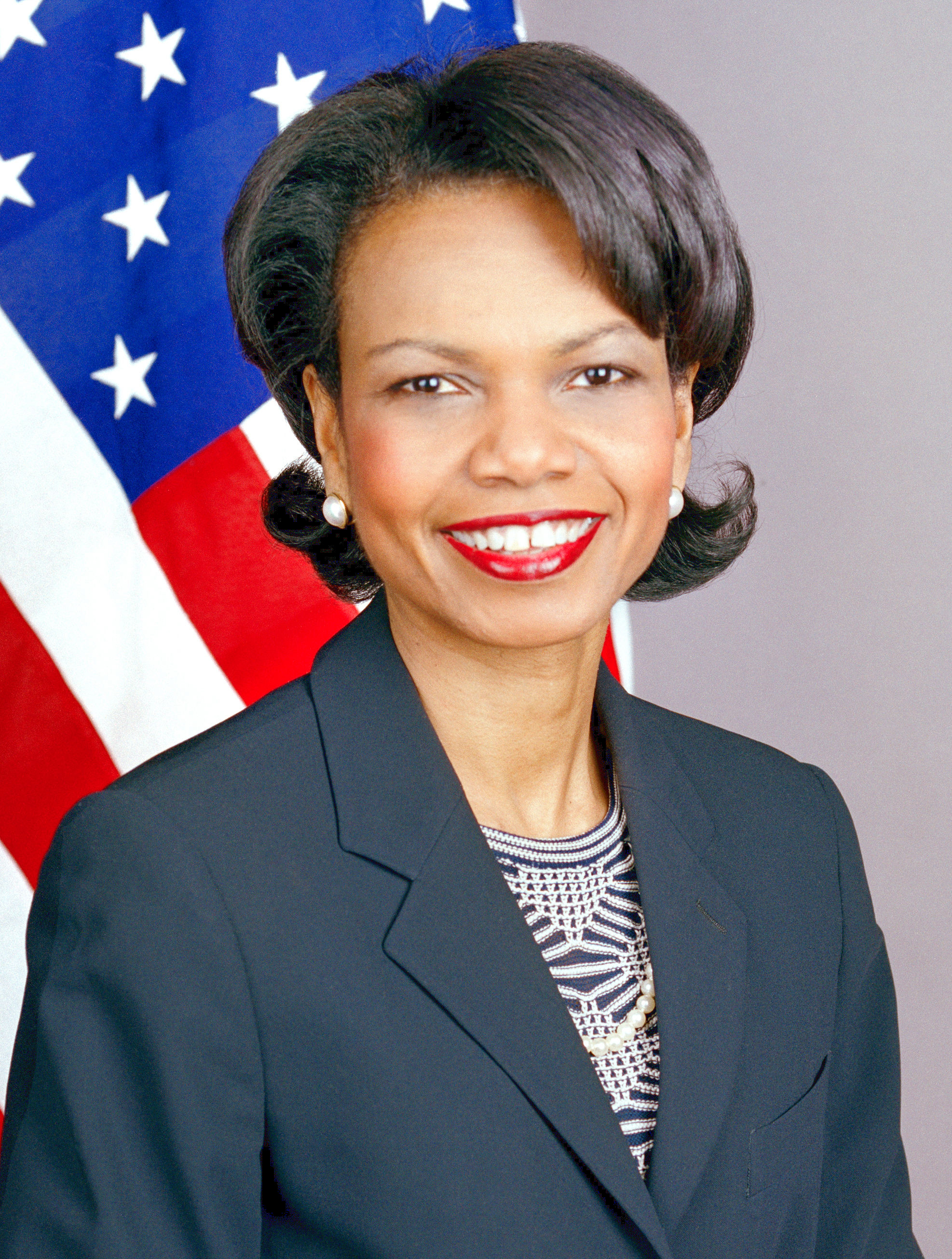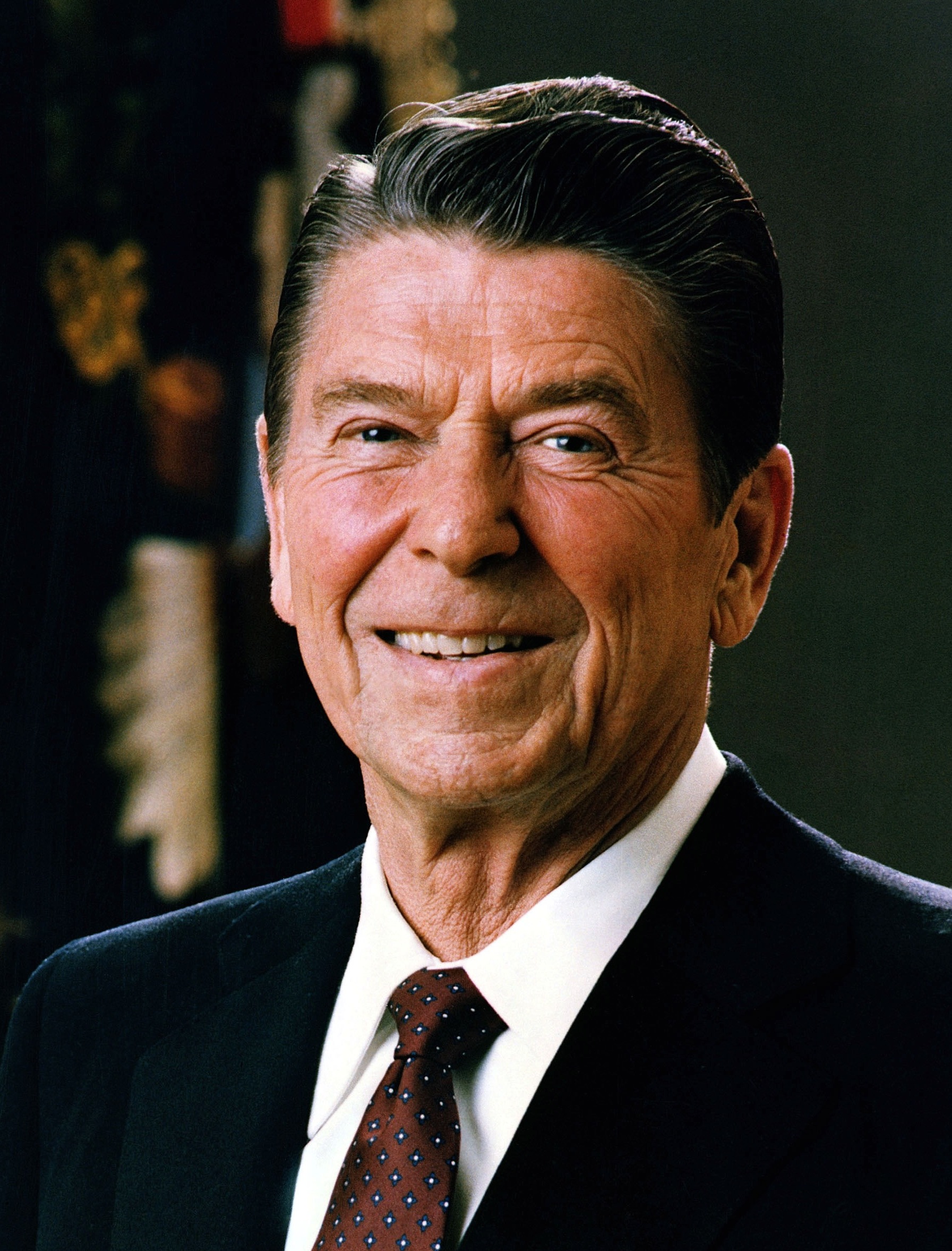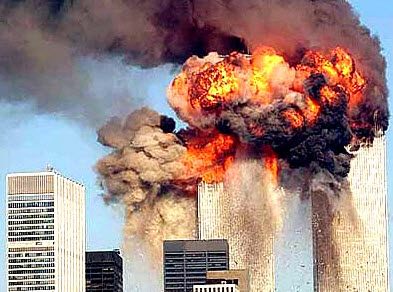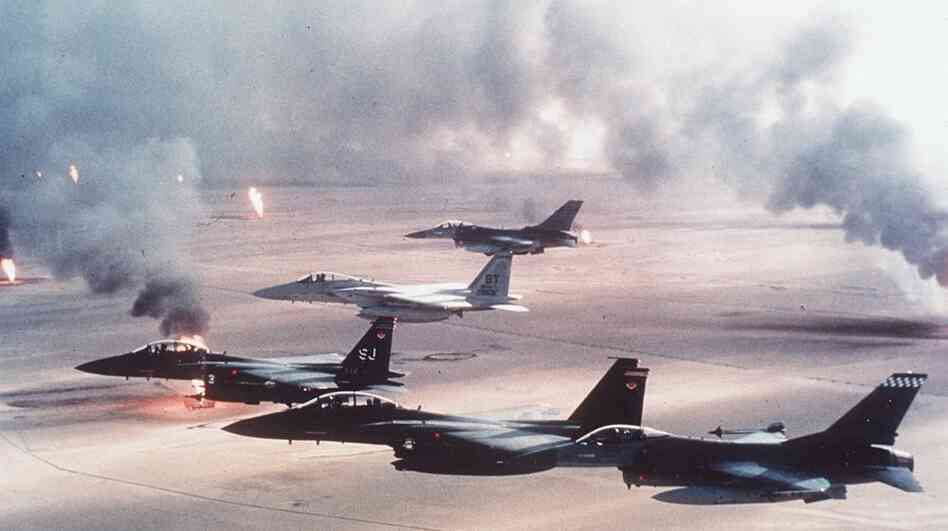Steve Jobs
-revolutionized America with his technology
- he started up a new company named Apple
-created the first computer
-technology is still used today
-was a technology pioneer
-helped create forms of mass communication
-established the modern day media
Monday, June 23, 2014
Sunday, June 22, 2014
Condoleezza Rice by Kierstin Livermore
- Condoleezza Rice was born on November 14th, 1954 and is an American political scientist and diplomat (Republican).
- 66th Secretary of State and was the second person to hold that office in the administration of President George W. Bush.
- Rice was the first female African-American Secretary of State, the second African-American Secretary of State, and the second female Secretary of State.
- Rice was President Bush's National Security Advisor during his first term, making her the first woman to serve in that position.
- Before being part of the Bush Administration, Rice was a professor of political science at Stanford University.
- Rice also served on the National Security Council as the Soviet and Eastern Europe Affairs Advisor to President George H.W. Bush during the dissolution of the Soviet Union and German reunification.
- As Secretary of State, Rice pioneered the policy of Transformational Diplomacy directed towards expanding the number of responsible democratic governments in the world and especially in the Greater Middle East
Iran Contra Affair

Ronald Reagan's efforts to eradicate Communism spanned the globe, but the insurgent Contras' cause in Nicaragua was particularly dear to him. Battling the Cuban-backed Sandinistas, the Contras were, according to Reagan, "the moral equivalent of our Founding Fathers." Under the so-called Reagan Doctrine, the CIA trained and assisted this and other anti-Communist insurgencies worldwide.
Assisting involved supplying financial support, a difficult task politically after the Democratic sweep of congressional elections in November 1982. First Democrats passed the Boland Amendment, which restricted CIA and Department of Defense operations in Nicaragua specifically; in 1984, a strengthened Boland Amendment made support almost impossible. A determined, unyielding Reagan told National Security Adviser Robert McFarlane, "I want you to do whatever you have to do to help these people keep body and soul together."
Crisis of Confidence Speech by Naoki Atkins
Crisis of Confidence Speech
- *On July 15, 1979, Jimmy Carter delivered a speech
- *Also known as "malaise speech" b/c it reflected Carter's pessimistic views of the future
- ***topic: energy crisis, dependency on foreign oil, America's confidence
- *Carter criticized the American way of life
- Before delivering the speech, Carter spent 10 days at Camp David meeting with ordinary Americans
- Many Americans viewed the federal gov.t as a stagnant bloated bureaucracy that failed to serve the people
- Carter added that the political world was corrupt, inefficient, and evasive
- Carter asserted that these problems stemmed from a deeper "fundamental threat to American democracy"
- ***The crisis led to domestic turmoil and "the loss of a unity of purpose for our nation"
The LA Riots By; Micaela Quiroga
The LA Riots
The LA Riots was a reaction to police officers on trial for beating Rodney King in South Central Los Angeles. It was also a result of street gangs such as Bloods and Crips coming together in unity against cops. On March 3, 1991, Rodney King was pulled over by four white male police officers that pulled him out of his car after chasing him for speeding, and claimed that he was defiant and on drugs. They beat him vigorously for at least fifteen minutes. Police violence was already occurring in South Central but it had been the first time the treatment was recorded. The news played the clip over and over on television for everyone to see. A second event that occurred in South Central that helped spark these riots was when a Latisha Harlins, a fifteen-year old black girl went into a Korean store to buy a juice. She put the juice in her backpack and went to pay, when the cashier accused her of stealing and tried taking her backpack away. Latisha hit the cashier in the face and in result was shot in the back of the head by the cashier and died on March 16, 1991. This event caused a feud between Koreans and Blacks on the street. The Riots began on April 29, 1992 after the verdict for the officers on the King Beating Case came back as "not guilty". Minutes after the verdict was announced, riots broke out on South Central in the intersection of Normandie and Florence. Liquor stores, chain stores, fast-food places, and white people were the main targets of looting, fire, and violence. People were pulled out of their cars and were beaten or they were targets for rocks, cement, bottles, etc. On the second day, the riots were more organized and buildings on South LA began to be burnt down. Korean store owners armed themselves and began gun battles against any rioters trying to get to their stores. No police officers or National Guard were present. On the third day, Rodney King was put on T.V. and told everyone in LA, "can we all get along?" but people were too outraged to stop. Police officers and National Guard continued to let LA burn as a huge power outage hit South Central. On the fourth and fifth days, the government and protective services begin to restore order but there are still random acts of violence for days after that. In the end, 53 people were killed, 2,000 were injured, and over $1 billion in damages were done. The riots were not just a collection of random acts. People were speaking out against oppression; against being held down for so long. The only way they were finally heard was through the extreme acts that came to be called the LA Riots.
The 1980 Election by Jared Tanner
The United States presidential election of 1980 was the 49th quadrennial presidential election. It was held on Tuesday, November 4, 1980. The contest was between Democratic President Jimmy Carter and his Republican opponent, former California Governor Ronald Reagan. Carter attacked Reagan as a dangerous right-wing radical. For his part, Reagan pledged to uplift the pessimistic mood of the nation, and won a decisive victory. With Reagan's win, America began an era of nationalist revival.
Star Wars- Hannah Aquino
The Strategic Defense Initiative (SDI), also known as Star Wars, was a program first initiated on March 23, 1983 under President Ronald Reagan. The SDI was intended to defend the United States from attack from Soviet ICBMs by intercepting the missiles at various phases of their flight. For the interception, the SDI would require extremely advanced technological systems, yet to be researched and developed. Among the potential components of the defense system were both space- and earth-based laser battle stations, which, by a combination of methods, would direct their killing beams toward moving Soviet targets. Air-based missile platforms and ground-based missiles using other non-nuclear killing mechanisms would constitute the rear echelon of defense and would be concentrated around such major targets as U.S. ICBM silos. The sensors to detect attacks would be based on the ground, in the air, and in space, and would use radar, optical, and infrared threat-detection systems.
This system would tip the nuclear balance toward the United States. The Soviets feared that SDI would enable the United States to launch a first-strike against them. Critics pointed to the vast technological uncertainties of the system, in addition to its enormous cost.
Although work was begun on the program, the technology proved to be too complex and much of the research was cancelled by later administrations. The idea of missile defense system would resurface later as the National Missile Defense
Bill Gates - Chase Hansen
Born on Oct. 28, 1955, Gates grew up in Seattle with his two sisters. Their father, William H. Gates II, is a Seattle attorney. Their late mother, Mary Gates, was a schoolteacher, University of Washington regent, and chairwoman of United Way International.
Gates attended public elementary school and the private Lakeside School. There, he discovered his interest in software and began programming computers at age 13.
In 1973, Gates entered Harvard University as a freshman, where he lived down the hall from Steve Ballmer. While at Harvard, Gates developed a version of the programming language BASIC for the first microcomputer - the MITS Altair.
In his junior year, Gates left Harvard to devote his energies to Microsoft, a company he had begun in 1975 with his childhood friend Paul Allen. Guided by a belief that the computer would be a valuable tool on every office desktop and in every home, they began developing software for personal computers. Gates' foresight and his vision for personal computing have been central to the success of Microsoft and the software industry.
Under Gates' leadership, Microsoft's mission has been to continually advance and improve software technology, and to make it easier, more cost-effective and more enjoyable for people to use computers. The company is committed to a long-term view, reflected in its industry-leading investment in research and development each year.
In addition to his love of computers and software, Gates founded Corbis, which is developing one of the world's largest resources of visual information - a comprehensive digital archive of art and photography from public and private collections around the globe. He is also a member of the board of directors of Berkshire Hathaway Inc., which invests in companies engaged in diverse business activities.
Philanthropy is very important to Gates. He and his wife, Melinda, started a foundation in 2000 to help reduce inequities in the United States and around the world. The Bill & Melinda Gates Foundation supports philanthropic initiatives in the areas of global health and learning, with the hope that in the 21st century, advances in these critical areas will be available for all people. To learn more about the foundation, visit www.gatesfoundation.org
Gates was married on Jan. 1, 1994, to Melinda French Gates. They have three children. Gates is an avid reader, and enjoys playing golf, tennis and bridge.
On June 27, 2008, Gates transitioned out of a day-to-day role in the company to spend more time on his global health and education work at the Bill & Melinda Gates Foundation. He shares his thoughts about the foundation and other topics on Gates Notes, a website launched in January 2010. Gates continues to serve on Microsoft’s Board of Directors and as an adviser on key development projects.
Gates attended public elementary school and the private Lakeside School. There, he discovered his interest in software and began programming computers at age 13.
In 1973, Gates entered Harvard University as a freshman, where he lived down the hall from Steve Ballmer. While at Harvard, Gates developed a version of the programming language BASIC for the first microcomputer - the MITS Altair.
In his junior year, Gates left Harvard to devote his energies to Microsoft, a company he had begun in 1975 with his childhood friend Paul Allen. Guided by a belief that the computer would be a valuable tool on every office desktop and in every home, they began developing software for personal computers. Gates' foresight and his vision for personal computing have been central to the success of Microsoft and the software industry.
Under Gates' leadership, Microsoft's mission has been to continually advance and improve software technology, and to make it easier, more cost-effective and more enjoyable for people to use computers. The company is committed to a long-term view, reflected in its industry-leading investment in research and development each year.
In addition to his love of computers and software, Gates founded Corbis, which is developing one of the world's largest resources of visual information - a comprehensive digital archive of art and photography from public and private collections around the globe. He is also a member of the board of directors of Berkshire Hathaway Inc., which invests in companies engaged in diverse business activities.
Philanthropy is very important to Gates. He and his wife, Melinda, started a foundation in 2000 to help reduce inequities in the United States and around the world. The Bill & Melinda Gates Foundation supports philanthropic initiatives in the areas of global health and learning, with the hope that in the 21st century, advances in these critical areas will be available for all people. To learn more about the foundation, visit www.gatesfoundation.org
Gates was married on Jan. 1, 1994, to Melinda French Gates. They have three children. Gates is an avid reader, and enjoys playing golf, tennis and bridge.
On June 27, 2008, Gates transitioned out of a day-to-day role in the company to spend more time on his global health and education work at the Bill & Melinda Gates Foundation. He shares his thoughts about the foundation and other topics on Gates Notes, a website launched in January 2010. Gates continues to serve on Microsoft’s Board of Directors and as an adviser on key development projects.
Saturday, June 21, 2014
Saddam Hussein by Steven Wong
Saddam Hussein
by Steven Wong
Saddam Hussein, born on April 28, 1937, was the fifth President of Iraq. He rose to power through maintaining authority over several oil reserves giving power to the Sunni Muslims in Iraq. Hussein officially served as president from 1979 to 2003 in the Arab Socialist Ba'ath which staged a coup and took over Iraq. He is widely known for his suppressive rule especially against the Shi'a and Kurdish movements and opposition to Israel, Iranians and Americans in the Iraq-Iran/Gulf Wars. In 2003, after nearly 25 years in office, the United States and United Kingdom invaded Iraq removing Husein from power. He was accused of possession of WMDs and killing of 148 Shi'as in 1982. Saddam Hussein was executed by hanging on December 30, 2006.
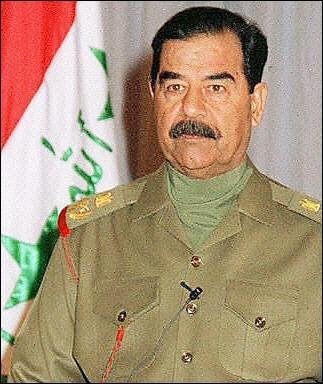
Osama bin Laden by Luke Newman
Osama bin Laden is a terrorist extremist who planned the attacks on the World Trade Center and is intent on driving Western influence from the Muslim world.

Taliban By Aly Piedad
The Taliban is an Islamic fundamentalist political movement in Afghanistan. The Taliban formed a government and became known as the Islamic Emirate of Afghanistan, with Kandahar as the capital.
Only in Pakistan, Saudi Arabia and the United Arab Emirates, did the Taliban have diplomatic recognition.
Mohammed Omar has been serving as the spiritual leader of the Taliban since 1994.
WebRep
currentVote
noRating
noWeight
Friday, June 20, 2014
Mikhail Gorbachev
By: Rachel Weaver
Mikhail Gorbachev
was born March 2, 1931 in Russia. The
general secretary of the Communist
Party of the Soviet Union from 1985 to 1991 and president of the
Soviet Union in 1990–91. His efforts to democratize his country’s political
system and decentralize its economy led
to the downfall of communism and the breakup of the Soviet Union in 1991. In
part because he ended the Soviet Union’s postwar domination of Eastern Europe,
Gorbachev was awarded the Nobel Prize for
Peace in 1990.

All presidents since FDR- Francisco Rosales
32. Franklin D. Roosevelt 1933-1945
33. Harry S. Truman 1945-1953
34. Dwight D. Eisenhower 1953-1961
35. John F. Kennedy 1961-1963
36. Lyndon B. Johnson 1963-1969
37. Richard M. Nixon 1969-1974
38. Gerald R. Ford 1974-1977
39. Jimmy Carter 1977-1981
40. Ronald Reagan 1981-1989
41. George Bush 1989-1993
42. Bill Clinton 1993-2001
43. George W. Bush 2001-2009
44. Barack Obama 2009-
33. Harry S. Truman 1945-1953
34. Dwight D. Eisenhower 1953-1961
35. John F. Kennedy 1961-1963
36. Lyndon B. Johnson 1963-1969
37. Richard M. Nixon 1969-1974
38. Gerald R. Ford 1974-1977
39. Jimmy Carter 1977-1981
40. Ronald Reagan 1981-1989
41. George Bush 1989-1993
42. Bill Clinton 1993-2001
43. George W. Bush 2001-2009
44. Barack Obama 2009-
Ronald Reagan by Kyle Sowatsky
-Ronald Reagan was the 40th President of the United States
-Prior to his presidency he was the 33rd Governor of California
-Developed Reagonomics (supply side economic policies) as a means of controlling inflation and spurring economic growth through tax cuts , reduced business regulation, and reduced growth in government spending
-Lowered the federal income tax rate significantly with the signing of the bipartisan Economic Recovery ACt of 1981
-Escalated the War on Drugs campaign and specified a mandatory minimum penalty for drug offenses
-Increased spending on national defense and diplomacy and ushered in a close to the Cold War
-Fired 11,345 striking air traffic controllers who illegally went on strike in 1981
-Appointed Sandra Day O'Connor as the first female Supreme Court Justice
-Popular actor in Hollywood prior to his Political Career
-Made films for the troops fighting in vietnam
-Ronald Reagan was the 40th President of the United States
-Prior to his presidency he was the 33rd Governor of California
-Developed Reagonomics (supply side economic policies) as a means of controlling inflation and spurring economic growth through tax cuts , reduced business regulation, and reduced growth in government spending
-Lowered the federal income tax rate significantly with the signing of the bipartisan Economic Recovery ACt of 1981
-Escalated the War on Drugs campaign and specified a mandatory minimum penalty for drug offenses
-Increased spending on national defense and diplomacy and ushered in a close to the Cold War
-Fired 11,345 striking air traffic controllers who illegally went on strike in 1981
-Appointed Sandra Day O'Connor as the first female Supreme Court Justice
-Popular actor in Hollywood prior to his Political Career
-Made films for the troops fighting in vietnam
Megan Logsdon 9/11
9/11
On September 11, 2001, 19 members of a terrorist group called al-Qaeda (al-KYE-da) hijacked four U.S. airplanes and used them to strike various targets on the East Coast. The carefully planned attacks killed nearly 3,000 people, making it the worst attack on the United States in history.
Thursday, June 19, 2014
Ayatollah Khomeini By: Kyler Brosnahan
Ayatollah Khomeini was born on 24 September 1902 and died on 3 June 1989. He was an Iranian religious leader and politician, and leader of the 1979 Iranian Revolution which saw the overthrow of the Shah of Iran. Following the revolution, Khomeini became the country's Supreme Leader, a position created in the constitution as the highest ranking political and religious authority of
the nation, which he held until his death. He has been described as the "virtual face of Islam in Western popular culture" and he is mostly known for his support of the hostage takers during the Iran hostage crisis.

Terrorism by kassandra nava
Terrorism:
The word terrorism is politically loaded and emotionally
charged, and this greatly compounds the difficulty of providing a precise
definition. Studies have found 100 definitions of terrorism. In some cases the same
group may be described as freedom fighters by its supporters and considered to
be terrorists by its opponents. The concept of terrorism may be controversial
as it is often used by state authorities to delegitimize political or other
opponents and potentially legitimize the states own use of armed force against opponents.
At the same time the reverse may also take place when states perpetrate or are
accused of perpetrating state terrorism. The usage of the term has a
controversial history, with individuals such as ANC leader Nelson Mandela at
one point also branded a terrorist.

Operation Desert Storm by Nate Diep
-First major foreign crisis for US after Cold War
-1990
-Saddam Hussein, dictator of Iraq sends army across border to Kuwait
-Kuwait was a major supplier of oil to US
-US seek Multinational aid at UN
-US issued ultimatum to Hussein: Leave or face a mulinational force
-No response from Iraq
-Bombing sorties pummel Iraq's military targets
-February 24 ground war starts
-Kuwait liberated 100 hours later
-Hussein still reigning in Baghdad
-US Consider bringing him down, but don't.
-Iraq agree to ceasefire
-1990
-Saddam Hussein, dictator of Iraq sends army across border to Kuwait
-Kuwait was a major supplier of oil to US
-US seek Multinational aid at UN
-US issued ultimatum to Hussein: Leave or face a mulinational force
-No response from Iraq
-Bombing sorties pummel Iraq's military targets
-February 24 ground war starts
-Kuwait liberated 100 hours later
-Hussein still reigning in Baghdad
-US Consider bringing him down, but don't.
-Iraq agree to ceasefire
1992 Election
1992 Election -Sophia Lee 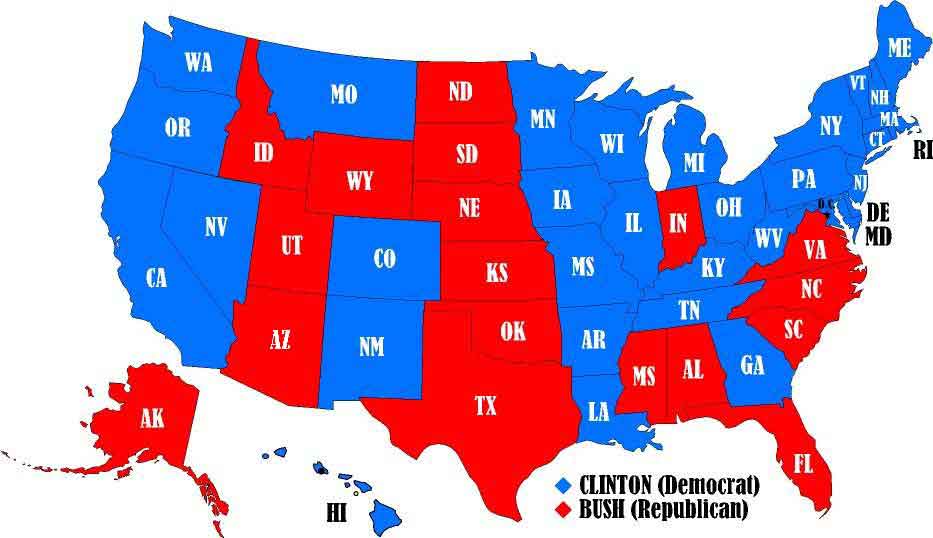

- On November 3rd 1992, Democrat Clinton won the election over George Bush
- Clinton got 370 electoral votes while Bush got 168 electoral votes
- Clinton became 42nd president
- Vice president was Al Gore
- People did not want to vote for Bush because they blamed the republicans for the terrible economy
- Also republicans was blame for the ending of the cold war
- Clinton's image of youth caused Americans to have hope for change and vote for him
- Ross Perot also ran for president canditare and help cause Bush the election
Wednesday, June 18, 2014
Camp David Accords-Jorge Moreno
Camp David Accords was forged in 1978 between Israel and Egypt at the U.S. presidential retreat at Camp David,
Called for a formal peace treaty to be signed between Israel and Egypt.
Called for establishment of diplomatic relations between the two countries.
Called for Israeli withdrawal from the Sinai Peninsula in stages, to be completed within three years.
Called for further meetings to resolve the Palestinian question. The meeting would include Jordan and a representative of the Palestinian people.
Called for a five-year transitional period of Israeli withdrawal from the West Bank and Gaza. This transitional period would include the introduction of Palestinian self-government.
Called for an end to Israeli settlements in the West Bank.
Did not settle the question of East Jerusalem.
March 26, 1979- In a ceremony in Washington, DC, Egypt and Israel formally sign a peace treaty ending 31 years of war between them.
Jimmy Carter-Madeline Allman
- Jimmy Carter was the 39th President of the United States from 1977-1981
- Before his presidency, Carter served as a U.S.Naval officer was a peanut farmer, served two terms as a Georgia State Senator and one as the Governor of Georgia, from 1971 to 1975.
- During his presidency, he created the Department of Education and the Department of Energy.
- He also established a national energy policy that included conservation, price control, and new technology.
- The end of his presidential term was marked by the 1979-1981 Iran hostage crisis, the 1979 energy crisis, the Soviet Invasion of Afghanistan,etc.
- Carter was also awarded the 2002 Nobel Peace Prize
War in Iraq by Robert Shipma
The Iraq War was an armed conflict in Iraq that consisted of two phases. The first was an invasion of Iraq starting on 20 March 2003 by an invasion force led by the United States.It was followed by a longer phase of fighting, in which an insurgency emerged to oppose the occupying forces and the newly formed Iraqi government.Roughly 96.5 percent of the casualties suffered by the U.S.-led coalition were suffered during the second phase, rather than the initial invasion. The U.S. completed its withdrawal of military personnel in December 2011, during the ninth year of the war. However, the insurgency is ongoing and continues to cause thousands of fatalities. Throughout the armed conflict, the United States never formally declared war on Iraq, making the war a military action.
Al Gore
Al Gore- by Marisela LaMadrid
- 45th Vice President of the United States (1993–2001)
- under President Bill Clinton.
- He was the Democratic Party's nominee for President and lost the 2000 U.S. presidential election despite winning the popular vote.
- He was a Congressman from Tennessee from 1977–85 and from 1985–93 served as one of the state's Senators.
- Gore is the founder and current chair:
- of the Alliance for Climate Protection
- of Generation Investment Management
- of the now-defunct Current TV network
- a member of the Board of Directors of Apple Inc
- a senior adviser to Google.
- In the 2000 presidential election, Gore won the popular vote but lost the Electoral College to Republican George W. Bush.
- A controversial election dispute over a vote recount in Florida was settled by the U.S. Supreme Court, which ruled 5-4 in favor of Bush.
- Gore has received a number of awards including the Nobel Peace Prize (2007), a Grammy Award for Best Spoken Word Album (2009) for his book An Inconvenient Truth.
- North is a combat-decorated Marine, author, founder of a small business.
- His awards for service in combat include the Silver Star, the Bronze Star for valor, and two Purple Hearts for wounds in combat.
- North also serves as the honorary chairman of Freedom Alliance, the conservative public policy organization he founded in 1990. Freedom Alliance provides tuition assistance to dependents of troops killed or permanently disabled in the line of duty.
- Freedom Alliance also provides support to members of the armed forces who have been wounded in the line of duty, are currently serving on the front lines, and their families. The organization is dedicated to the maintenance of a strong national defense, the protection of the rights and freedoms of individual citizens, and the adoption of policies that promote free enterprise.
by Andrew Blume
"Tear Down This Wall!"
"Tear Down This Wall"
Tanner Robertson
On June 12th 1987 Ronald Reagan challenged Soviet Union leader Mikhail Gorbachev to tear down the Berlin Wall. Reagan made this speech at the Brandenburg gate with protective bullet proof glass behind him in order to stop any sniper shots from East Berlin. These four words are said to be the highlight of Reagan's Presidency. Although the speech was influential, Gorbachev did not tear down the wall until 29 months later.Ross Perot-by Jolie Nelson
- Born June 27, 1930 (age 83)
- American Businessman
- Founded Electronic Data Systems in 1962, sold the company to General Motors in 1984, and founded Perot Systems in 1988.
- Best known for being an independent presidential candidate in 1992 and 1996.
- Founded the Reform Party of the United States of America in 1995.
- One of the most successful third party candidates in American history.
- Retired from day-to-day operations of Perot Systems in 2000 but remained as the company's chairman.
- In 2012 he threw his support behind Republican candidate Mitt Romney in the presidential race.
Subscribe to:
Comments (Atom)
